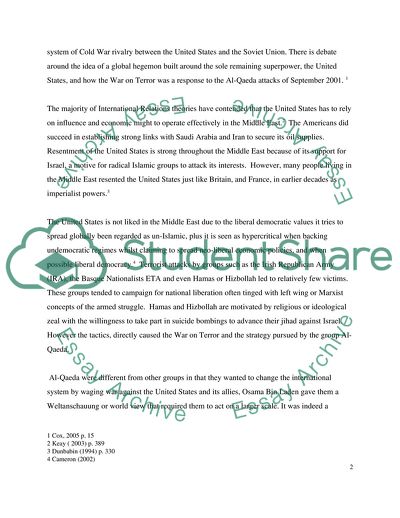Cite this document
(International Relations Theory and Approaches: War on Terror Coursework, n.d.)
International Relations Theory and Approaches: War on Terror Coursework. https://studentshare.org/politics/1717182-international-relations-theory-and-approaches-war-on-terror
International Relations Theory and Approaches: War on Terror Coursework. https://studentshare.org/politics/1717182-international-relations-theory-and-approaches-war-on-terror
(International Relations Theory and Approaches: War on Terror Coursework)
International Relations Theory and Approaches: War on Terror Coursework. https://studentshare.org/politics/1717182-international-relations-theory-and-approaches-war-on-terror.
International Relations Theory and Approaches: War on Terror Coursework. https://studentshare.org/politics/1717182-international-relations-theory-and-approaches-war-on-terror.
“International Relations Theory and Approaches: War on Terror Coursework”. https://studentshare.org/politics/1717182-international-relations-theory-and-approaches-war-on-terror.


